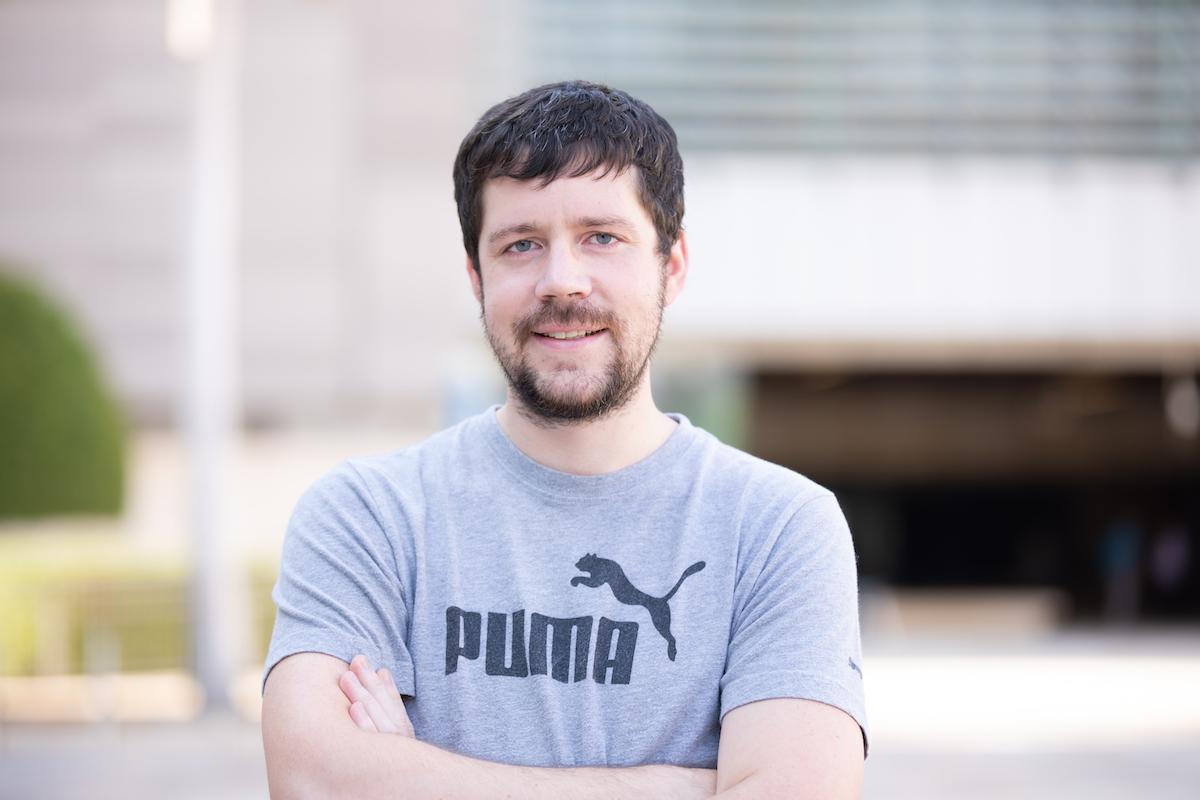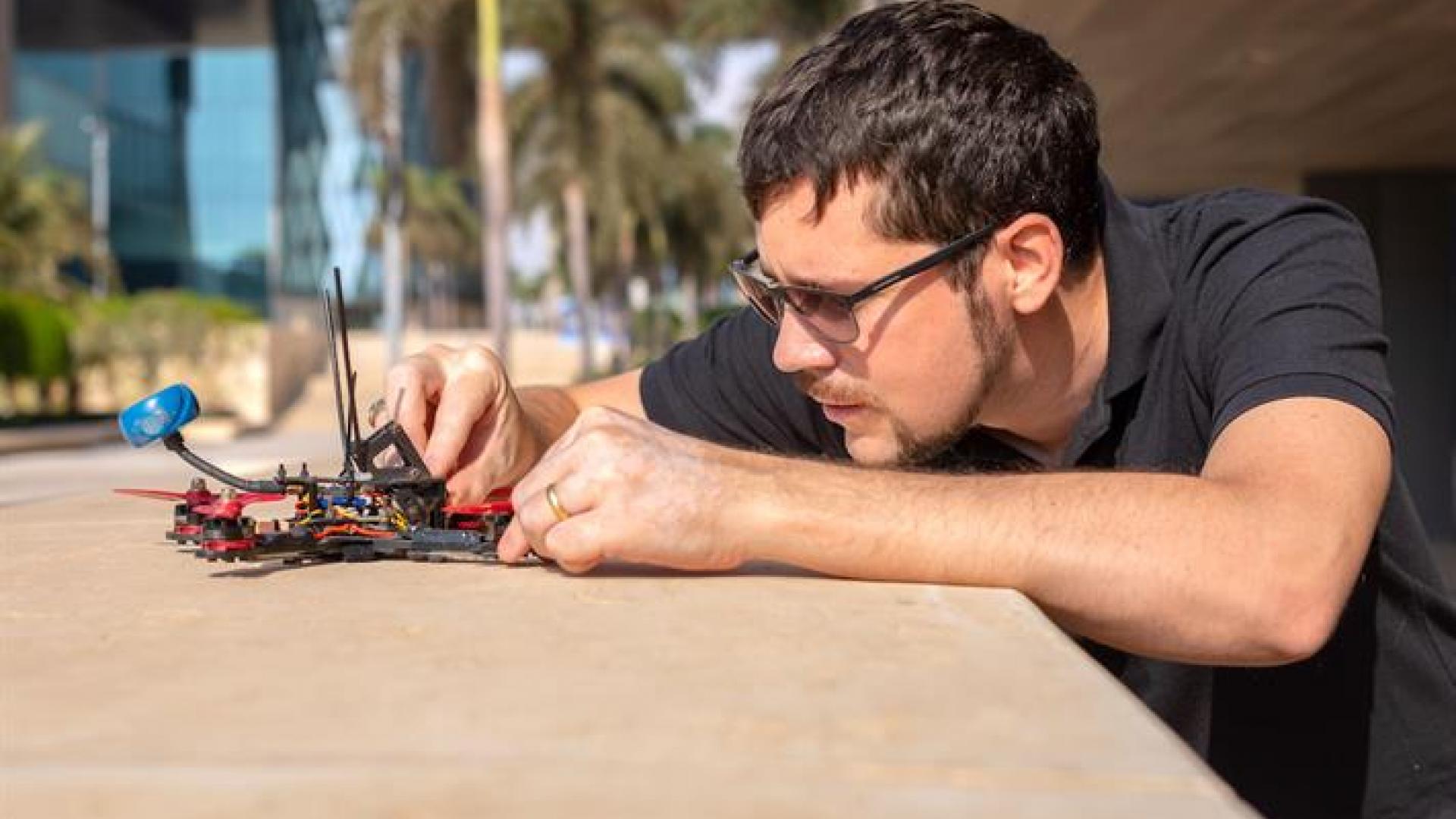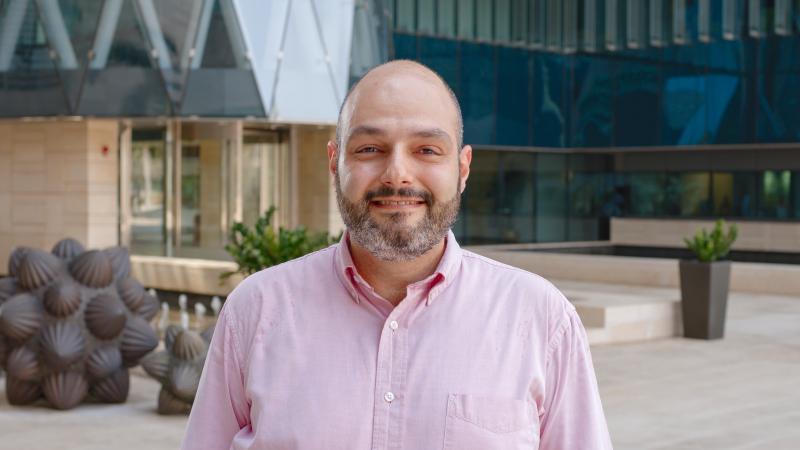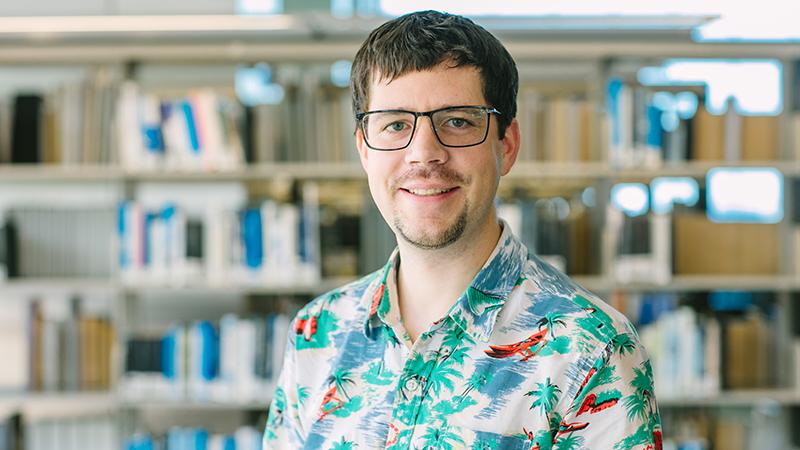KAUST Ph.D. student Matthias Mueller, who works in the Image and Video Understanding Lab under the supervision of KAUST Associate Professor Bernard Ghanem, won the Best Paper/Presentation Award at the 2nd International Workshop on Computer Vision for Unmanned Aerial Vehicles (UAVs). UAVs are commonly known as drones.
The workshop was held in September 2018 in Germany in the post-proceedings of the 15th European Conference on Computer Vision workshops. Müller's paper entitled "Teaching UAVs to Race: End to End Regression of Agile Controls in Simulation" outlines the research of Müller and his colleagues Vincent Casser, Neil Smith, Dominik L. Michels and Ghanem on teaching UAVs to navigate through a racecourse autonomously using computer vision/machine learning.
"It feels great to represent KAUST at a top-tier international venue and to win the Best Paper award. I'm very thankful to my collaborators and my advisor," Müller said.
Automating the navigation of drones in diverse scenarios has gained much attention in recent years. However, teaching them to fly in challenging environments remains an unsolved problem, mainly due to the lack of training data. Müller noted his research results underline the importance of extensive data augmentation techniques to improve robustness in end-to-end learning setups.
"We train a deep neural network to predict UAV controls from raw image data for the task of autonomous UAV racing in a photo-realistic simulation—Sim4CV, also developed by the Image and Video Understanding Lab," Müller explained. "Training was done through imitation learning with data augmentation to allow for the correction of navigation mistakes. Extensive experiments demonstrate that our trained network—when sufficient data augmentation is used—outperforms state-of-the-art methods and flies more consistently than many human pilots."

Mueller joined KAUST in 2014 when he began his master's degree in electrical engineering. He then enrolled in the University's Ph.D. program in 2016. Previously, he earned a bachelor of science degree in electrical engineering and mathematics from Texas A&M University. He also worked as an engineer in Germany, with some of his work focusing on the development of mild-hybrid electric machines at BMW.
With research interests in the fields of computer vision, robotics and machine learning—where he has contributed to more than 10 publications—Müller would like to focus his future work in the direction of "sim-to-real" transfer.
"A lot of our research is in simulation, and I'm very excited to transfer it to the real world. We have already done it for some projects, and while it is very time consuming, it is equally rewarding," he said.
Read full article on KAUST News.


